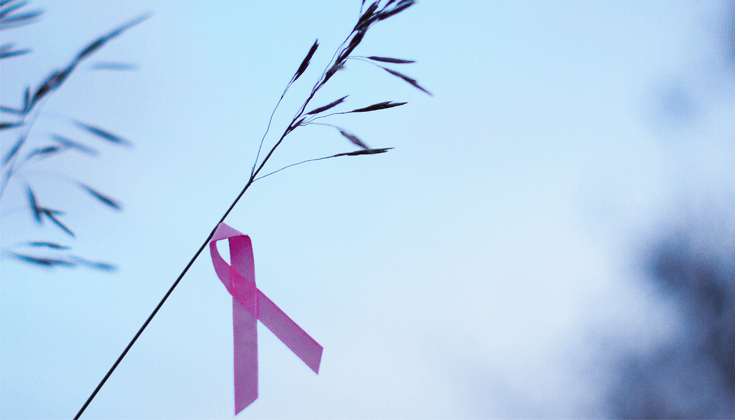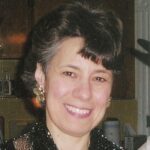I am now a breast cancer survivor. In early spring 2015, I was diagnosed with an early-stage carcinoma that was surgically removed. After surgery I had a course of radiation treatments. This was not a journey I would have chosen, but it has brought me gifts. During this time of diagnosis, treatment and healing, practicing mindfulness and yoga has offered me a container to lean into and, at times, a container to surrender to.
In late April during the first days after the diagnosis, the words of Rabbi Alan Lew came to me during a sitting meditation: “This is real and you are completely unprepared.” They’re from the title of his book, This Is Real and You Are Completely Unprepared: The Days of Awe (as in the time period between Rosh Ha Shanah and Yom Kippur) as a Journey of Transformation. Rabbi Lew’s writings drew on stores of Jewish wisdom, as well as a profound psychological awareness borne of his work as a spiritual leader and counselor. Another book he authored was titled, One God Clapping: The Spiritual Path of a Zen Rabbi.
Rabbi Lew’s phrase, “completely unprepared,” really strikes a deep chord. It names something deep and pervasive in the human psyche. Although we’re not often in touch with this feeling, deep down we all feel unprepared. If we look at our lives honestly, the events that really shape us, that really make us who we are, are the events we didn’t prepare for, or we couldn’t prepare for, like a serious illness, the loss of a loved one, the failure of a relationship — these are the things that really shape our lives.
Sitting in a chair waiting for an appointment or for treatment, I would take slow intentional breaths.
If it’s true that “this is real and you feel completely unprepared,” what do you do? What is the next step forward? From a mindfulness perspective, a way to respond to life, including those moments when we feel “completely unprepared” is to simply take slow, deep breaths.
I have had a yoga practice for some 30 years. Through that, and through my work in teacher preparation, I began learning about and using mindfulness practices in my life. In yoga practice, for example, simple forward bends both standing and seated can be calming. During this traumatic time when waves of fear would arise, I would feel distracted and not easily able to focus. Practicing simple forward bends and reminding myself to breath would begin to settle my mind and body and the fears would begin to pass, giving me some space.
Many moments followed when constructive choices and decisions needed to be made, and I would feel overwhelmed, almost as if I was underwater and not quite able to reach the surface. In those moments, sitting and following my breath would help me come to the surface. I could imagine my activated amygdala coming to quiet, and soothing energy being sent to my pre-frontal cortex, calming my body and helping me to begin to think and make decisions. When I felt clear and more able to hear my own voice, I would gather myself to take the next step.
In my yoga practice, the following simple intentions have informed my practice: move into the pose, be in the pose and reflect on any thoughts or sensations coming up, and then surrender as you hold the pose—and then, with grace, repeating the cycle, using the tool of repetition to quiet any distracting thoughts and to give room for any strong sensations to ease. These intentions were helpful to me in managing the appointments with doctors, undergoing the surgery, completing a course of eight weeks of daily radiation treatments, and now healing. Sitting in a chair waiting for an appointment or for treatment, I would take slow intentional breaths, moving into a seated posture with my feet firmly on the floor, my back straight, my belly soft, creating space for my breath. I would notice any sensations in my body, if my heart was beating quickly or my stomach was churning. I would notice if my mind was jumping from thought to thought. I would breathe, in and out, and would notice the feelings, sensations or thoughts settling like waves gently breaking on the shore.
I am now more easily able to mindfully feel both the difficult and the pleasant emotions of this journey—the uncertainty, the worries and the fear, the relief as I recover, the acceptance of a new normal, and noticing my strength and resilience—each informing the other. Writing about it now I see that having experienced cancer brought with it some gifts: a new sense of integration, a new sense of knowing myself—grounded in the present—with hope for the future.

